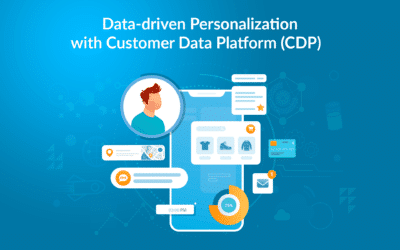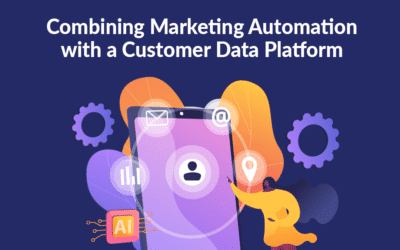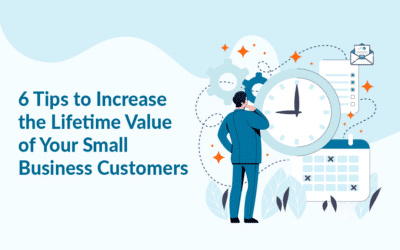Customer Data Platform or CDP is an innovative technology that gathers and unifies customer data from multiple sources, providing companies with a holistic view of their customers and empowering them to deliver personalized and relevant experiences. The internet has fundamentally changed the way we do business, and with that shift has come an explosion of customer data. Companies of every size and type grapple with the challenge of managing, analyzing, and leveraging customer data to drive growth and success. In an era when customer expectations are high and customers demand personalized experiences, companies that can harness the power of customer data will outpace and outperform competitors.
As companies seek to operationalize customer data to understand who their customers are, how they behave, and what matters to them, they need a tool that can give them the holistic, real-time, and flexible insights they require to succeed. This is where the CDP kicks down the door to the saloon and pulls out its six-shooters and shouts “Give me a bottle of whiskey! Yii-ha!”.
A CDP is software that specializes in the unification, organization, activation, and orchestration of first-party customer data. With a CDP in place, businesses can bridge their siloed data sources, gain a single view of each customer, and execute personalized and optimized customer interactions across all channels in real-time in for example their Marketing Automation Platform. In essence, a CDP is the central nervous system for customer data, providing the intelligence and decision-making muscle that businesses need to deliver truly differentiated customer experiences.
So, why is CDP becoming the key to unlocking business growth and success? Here are my three reasons!
A Customer Data Platform (CDP) unlocks insights into customer behavior and preferences.
One of the biggest challenges businesses encounters in today’s ever evolving business landscape is understanding who their customers are and what motivates them, and most importantly getting them to act or buy! While data on customers is plentiful and almost free-floating, it is often siloed across different departments, systems, and channels, making it difficult to get a complete picture of each customer. A Customer Data Platform offers an elegant and effective solution to this challenge by capturing and unifying customer data from all sources – almost like a vacuum cleaner, when connected it picks up everything!
With this comprehensive view of each customer, businesses can build a deep understanding of what their customers want, how they behave, and what specific actions move customers along the sales funnel. For example, a CDP can help an eCommerce company understand when a customer is most likely to purchase a particular product, which marketing content is most effective in driving conversion, and what other products a customer is likely to be interested in purchasing based on both the individual’s data and based on similar consumers in the customer database.
By using these insights to personalize customer interactions across all touchpoints, businesses can create a customer experience that drives engagement, loyalty, and lifetime value. A CDP also enables businesses to stay ahead of shifting customer preferences and market trends, as they can quickly assess which products and for instance which Email Marketing campaigns are resonating and which are not, and then optimize as needed.
A Customer Data Platform (CDP) supports your customer interactions
With the rise of digital channels, online shopping, and the rapid pace of innovation, customers have come to expect personalized and immediate experiences from businesses. Waiting for hours or days to receive a response or for their preferences to be reflected can lead to lost opportunities and dissatisfied customers. But once again Customer Data Platform proves its worth!
A CDP does not just unify customer data, it can also activate it when used in combination with a Marketing Automation platform. It can trigger personalized and relevant customer interactions across channels. A company can use а CDP to automatically recommend products to customers based on their previous behavior or request feedback from customers as soon as a purchase is completed and use it in Email Marketing or SMS Marketing.
By offering immediate and personalized experiences, companies can differentiate themselves from their competitors and build loyalty amongst their customers and show and show that they understand their customers’ needs before they do so themselves! They can remain relevant in customers’ lives and stand out. By using the data captured through a CDP to personalize interactions, companies increase the chance of upselling, cross-selling, or re-engaging with a customer who could have potentially churned or found a competitor appealing.
Customer Data Platform (CDP) facilitates a customer-first approach
Companies that treat their customers as voiceless targets often suffer from disengaged and unhappy customers who feel unheard and forgotten. A Customer Data Platform facilitates a customer-centric approach, by enabling companies to engage customers on their terms and to provide services and products that meet their needs, rather than simply pushing a product or service in their faces!
By using a CDP to understand customer behavior and preferences, companies can identify gaps in their offerings and adjust their products, services, and operations to fulfill customers’ needs and understand how to sell their products or solutions in a better way.
By ticking off these customer needs, companies set themselves up for business growth and good returns. Satisfied customers are more likely to refer to companies, which can increase their customer base and profitability significantly. It is, therefore, essential for businesses to move towards this customer-first approach, which they can easily achieve with a Customer Data Platform’s data-driven insights!
Data is essential for any modern company that wants to achieve growth and success!
This blog post has also appeared in a MarketingPlatform Newsletter.
Author: Theodor Nørgaard, head of marketing & digital
Try MarketingPlatform for free for 14 days
The trial period is free, completely non-binding and expires after 14 days if you do not wish to continue.
When you sign up, you will also receive our educational flow via a series of emails along with our newsletter with regular updates.





